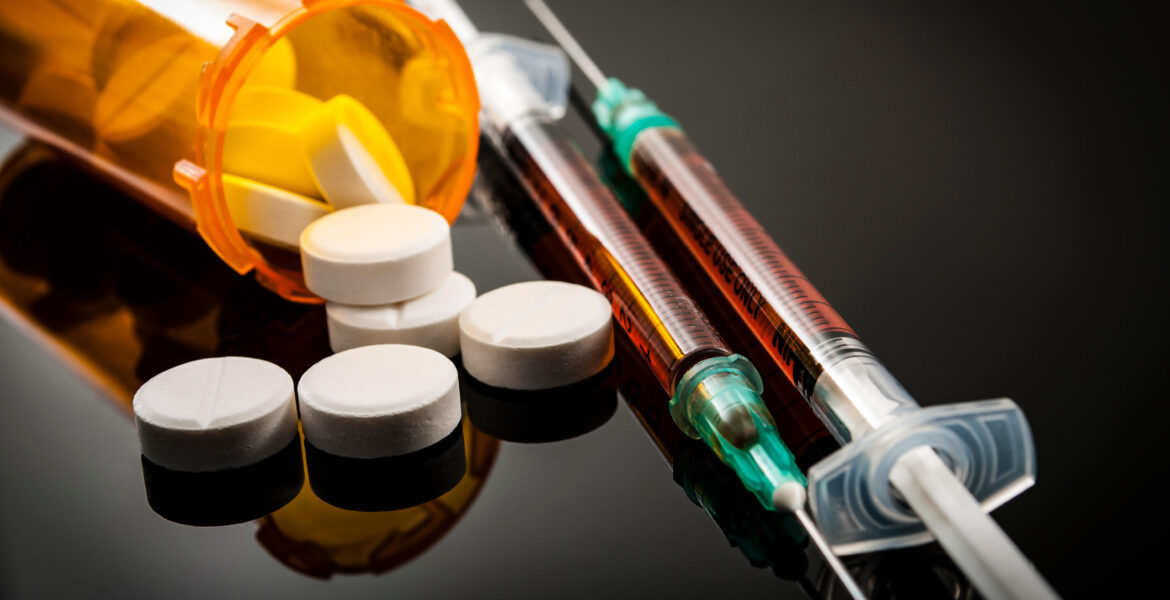How Addictive Are Opioids?

The opioid crisis has been making national headlines for years, and it doesn’t seem to be going away soon. So, what are opioids, and why are they so addictive?
Keep reading to discover how addictive opioids are and how an opioid rehab program can help those struggling with addiction!
Atlantic Recovery Center is a top-rated drug and alcohol treatment center in Davie, FL. Contact us today to learn more about our Florida treatment center.
What Are Opioids?
An opioid is a drug that is derived from the opium poppy plant, and it can be used to relieve pain.
Opioids attach to specific proteins in the brain known as opioid receptors that diminish feelings of pain and can produce a sense of euphoria.
Are Opioids Necessary?
Prescription opioids like oxycodone, hydrocodone, morphine, and codeine are used for pain management, and for some patients, these medications can be necessary for their quality of life.
How Do Opioids Impact the Body?
When taken as prescribed, opioids can be helpful for short-term pain relief.
Unfortunately, many people who take these drugs become addicted and develop a dependence on them.
Over time, the body develops a tolerance to opioids and requires increasingly higher doses to achieve the same effect.
This increases the risk of overdose and can cause serious health complications, including organ damage and respiratory depression.
How Addictive Are Opioids?
When taken in high doses or over an extended period, opioid use has been linked to an increased risk of overdose, a weakened immune system, and even death.
Opioid Addiction Statistics
Recent research has shown that opioid-related deaths have been steadily increasing in the United States since 1999.
In 2020, there were over 81,000 overdose deaths from opioids, a staggering increase from the approximately 18,000 deaths in 1999.
What is Opioid Use Disorder?
Opioid use disorder (OUD) is a chronic and potentially life-threatening condition resulting from taking opioids.
People with OUD have difficulty controlling or stopping their opioid use, even when it causes severe consequences for their health, relationships, and finances.
What Are the Effects of Opioid Abuse?
Opioid abuse can have devastating consequences.
Effects of opioid abuse include the following:
- Loss of concentration and coordination
- Drowsiness
- Constipation
- Nausea or vomiting
- Loss of appetite
- Severe mood swings
- Depression, anxiety, and other mental health issues
- Increased risk of serious medical complications, including overdose
What Causes Opioid Abuse?
Risk factors, including genetics, environment, and mental health, cause opioid abuse. Some people may be more prone to developing an opioid use disorder due to their genetic makeup or specific environmental triggers.
Additionally, those with preexisting mental health issues such as depression or anxiety may be more likely to develop an opioid use disorder.
Symptoms of an Addiction to Opioids
The signs and symptoms of addiction include:
- Uncontrollable cravings for opioids
- Extreme fatigue
- Increased tolerance to opioids, leading to needing higher doses in order to achieve the same effect
- Inability to control or stop one’s opioid use despite negative consequences such as legal issues or strained relationships
Effects of Opioid Withdrawal & Overdose
Opioid withdrawal symptoms can be severe, including nausea, vomiting, muscle aches, insomnia, and intense cravings.
If left untreated, these symptoms can lead to serious health complications, such as dehydration or organ damage.
In addition to withdrawal symptoms, opioid overdose can have devastating effects on the body, including coma, slowed breathing and heart rate, and even death.
It’s essential to seek medical attention if you or someone else is experiencing signs of an opioid overdose.
What Can You Do in Case of an Overdose?
If you see someone experiencing an opioid overdose, the first step is to call 911 or your local emergency services.
In the meantime, you can also administer naloxone, a medication that blocks opioid receptors and reverses opioid overdoses.
It’s important to remember that naloxone should only be administered if you’re sure the person has taken an opioid and not another drug.
How Can Opioid Recovery Programs Help?
Opioid recovery programs can help those struggling with addiction detox safely from opioids and learn how to manage their cravings.
Addiction treatment programs typically involve medically-assisted treatment (MAT), counseling, support groups, and other strategies to help people with OUD get on the path to recovery.
Whether you’re struggling with opioid abuse, or you know someone who is, it’s essential to seek help as soon as possible.
Atlantic Recovery Center Treats Opioid Addiction in South Florida
Are you or a loved one battling an addiction to opioids? Look no further- we can provide the help needed to overcome this disease.
At Atlantic Recovery Center, we offer specialized treatment therapies for those struggling with addiction.
Our experienced addiction professionals are devoted to using evidence-based strategies to aid individuals in their sobriety journey.
We support our clients throughout the opioid detox process, helping them manage cravings and ensuring a better chance of attaining long-term recovery success.
Reach out today for more details about how we can help put an end to your struggle with opioids!


